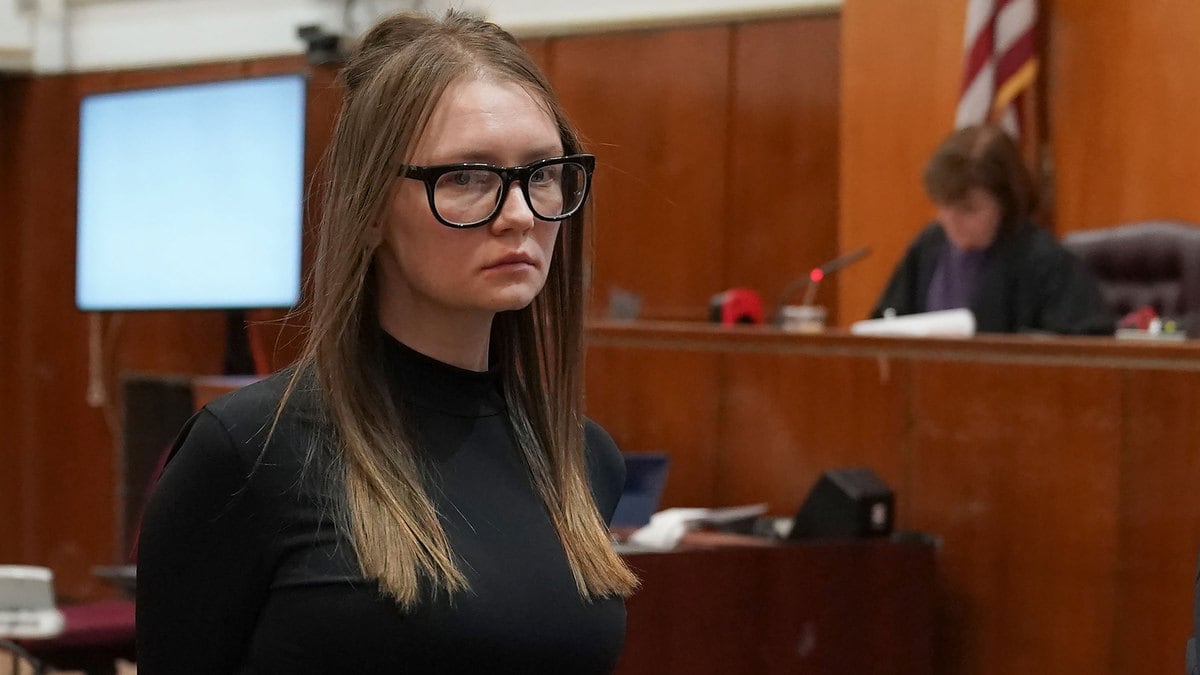The rekindling of public fascination with fake German heiress Anna Delvey ignited by a soapy Netflix miniseries could end up bringing attention to the plight of other people who, like her, are currently held in detention by U.S. Immigration and Customs Enforcement.
Delvey (née Sorokin) is one of four plaintiffs in a lawsuit filed by the American Civil Liberties Union on behalf of medically vulnerable people held in ICE detention who requested and were denied access to COVID-19 vaccine booster shots—a vulnerability that medical experts on disease transmission and public health say is particularly acute in carceral environments.
“Any setting where people don’t have a choice to leave, such as prisons, jails and immigration detention, are considered congregate settings, and in a congregate setting the risk of transmission is much greater because of the proximity of individuals to one another,” said Dr. Ranit Mishori, the senior medical adviser at Physicians for Human Rights and a professor of family medicine at the Georgetown University School of Medicine who also serves as the university’s chief public health officer.
Mishori noted that the well-documented limited access to proper medical treatment in ICE facilities puts detainees at higher risk for severe disease, hospitalizations, and death.
“When you talk about immigration, detention or other carceral settings, we talk about subpar medical access to medical care and lack of access to basic prevention methods,” Mishori said. “You can imagine, with the exponential growth in how this virus propagates, that large numbers of people in those settings can very quickly be infected.”
Delvey’s journey from would-be socialite and artworld luminary to “Summer of Scam” icon to New York State Department of Corrections Inmate #19G0366 to potential deportee has been well-documented since her crimes were highlighted in a widely read article in New York magazine. But the plight of her three fellow plaintiffs in the case, as well as the thousands of other undocumented immigrants held in ICE custody who have yet to receive COVID-19 vaccine boosters, has not received anywhere near that level of publicity.
Between November 2021, shortly after the Centers for Disease Control and Prevention recommended that all people in high-risk settings like detention centers receive booster shots, and late February of this year, ICE provided fewer than 1,500 boosters to people held in its facilities, according to the suit, out of roughly 20,000 individuals in its custody on any given day. The agency’s own COVID-19 Pandemic Response Requirements make no mention of boosters or its plan to roll them out within the sprawling ICE detention network, and did not even include official plans for a first dose of vaccinations until last October.
That shortfall of booster shots has, according to the suit, led to serious consequences for the plaintiffs.
Miguel Angel Escalante is a 36-year-old man currently held in the Florence Correctional Center, a private prison run by a company once accused of requiring detainees to work for $1 a day in exchange for access to toilet paper. Escalante, the named plaintiff in the ACLU’s case, is HIV-positive and has filed five separate requests for release on humanitarian grounds due to his compromised immune state. But like other ICE detainees living with HIV, Escalante has been repeatedly denied release, as well as access to a booster over a three-month period, despite making four requests for one at multiple facilities.
“It’s shameful that yet again, the ACLU has to sue ICE to provide basic care for people in detention,” Arthur B. Spitzer, senior counsel at the American Civil Liberties Union of the District of Columbia, said in a statement announcing the suit. “Booster shots are a necessity for people in crowded housing conditions and are readily available. There’s no excuse for ICE’s failure to provide them.”
Ramon Dominguez Gonzalez, another plaintiff in the case who is clinically obese, made three requests for a booster while in ICE custody, according to the suit, all of which were apparently ignored before he finally contracted COVID-19 in January. Gonzalez still has breathing problems after his bout with the virus, and ICE has refused to provide him with an mRNA vaccine, instead proffering another shot of the single-dose Johnson & Johnson vaccine that the agency has largely relied on for its vaccination strategy.
That vaccine has shown less effectiveness against new variants of the coronavirus than combinations of mRNA vaccines and booster shots—which means that even access to a Johnson & Johnson booster shot may not provide optimal protection for detainees, said Eunice Cho, senior staff attorney at the ACLU’s National Prison Project.
“ICE officials have known for months that they must provide booster shots to people in detention, but have failed to do so,” said Cho in a statement. “ICE’s callous failure to provide this necessary protection is cruel and unconstitutional.”
Last month, a dozen U.S. senators called on the Department of Homeland Security to create a comprehensive plan for providing booster shots to those held in ICE detention, saying that the agency’s “apparent failure to successfully administer booster shots places individuals in its custody in great danger.”
“Moreover,” the letter’s signatories, led by Sens. Ben Cardin (D-MD) and Elizabeth Warren (D-MA), wrote, “ICE’s heavy reliance on the Johnson & Johnson vaccine increases the importance of booster doses, particularly mRNA vaccines, for people in its custody.”
Part of the issue, Mishori told The Daily Beast, is that the same misinformation about vaccines and variants that have kept the nation’s booster rates depressingly low has percolated in the detention system—a dynamic that is exacerbated by the minimal trust that many detainees have in ICE to have their best medical interests at heart.
“It’s a problematic setting in which you can convince somebody to get a non-benign medical intervention,” Mishori said.
The Department of Homeland Security did not respond to questions about its policies regarding boosters for people held in ICE detention, but if booster rates among guards and staff members at ICE detention facilities is as low as it is across the country, Mishori said, that too could present specific risks to those who literally cannot escape close contact with unboosted individuals.
“If staff are not up-to-date on their vaccinations, that will have an impact on those who are being held in detention,” Mishori said. “I hate to use a cliché, but the virus doesn’t care whether you’re a detainee or you’re a guard or you’re one of the staff members, so any questions about vaccines have to be looked at taking all of these populations that are present in ICE detention facilities—not just one or the other.”
Delvey, too, contracted COVID in ICE detention after a request for a vaccine was ignored, according to the suit, and has suffered from lingering symptoms of the illness consistent with “long-haulers.” Delvey, a Russian-born German citizen, is currently fighting a final order of removal after allegedly overstaying her visa following her release from state prison in February 2021. The convicted con artist—who once pretended to be an heiress to a $60 million trust fund in order to scam luxury hotels, hangers-on and major banks out of more than a quarter-million dollars in goods and services—was originally set to be deported to Germany last week, but after her attorney filed an emergency appeal citing the “serious health issues” caused by her illness, she still remains in-country.
Manny Arora, who represents Delvey in her criminal appeal, told The Daily Beast that while the Orange County Correctional Facility in Goshen, New York, has ultimately offered vaccine boosters following the suit, the original refusal has caused medical complications that still linger.
“You can imagine it's all part and parcel—you want to be safe even though you're being housed,” said Arora, who declined to say whether Delvey had ultimately received a vaccine booster out of concern for her medical privacy. “Whether you claim you did or didn’t do it, your health shouldn’t be jeopardized.”








